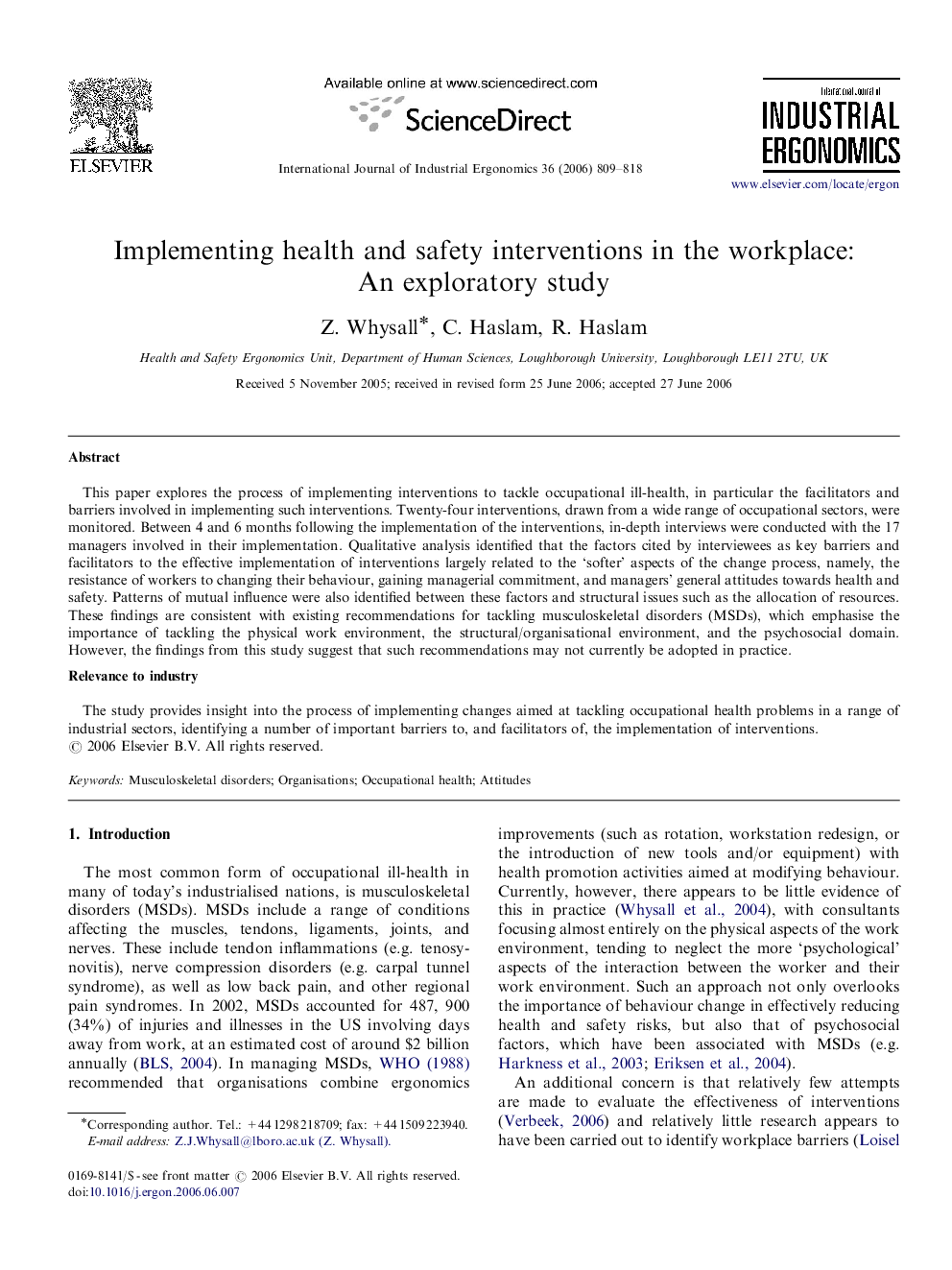| Article ID | Journal | Published Year | Pages | File Type |
|---|---|---|---|---|
| 1096527 | International Journal of Industrial Ergonomics | 2006 | 10 Pages |
This paper explores the process of implementing interventions to tackle occupational ill-health, in particular the facilitators and barriers involved in implementing such interventions. Twenty-four interventions, drawn from a wide range of occupational sectors, were monitored. Between 4 and 6 months following the implementation of the interventions, in-depth interviews were conducted with the 17 managers involved in their implementation. Qualitative analysis identified that the factors cited by interviewees as key barriers and facilitators to the effective implementation of interventions largely related to the ‘softer’ aspects of the change process, namely, the resistance of workers to changing their behaviour, gaining managerial commitment, and managers’ general attitudes towards health and safety. Patterns of mutual influence were also identified between these factors and structural issues such as the allocation of resources. These findings are consistent with existing recommendations for tackling musculoskeletal disorders (MSDs), which emphasise the importance of tackling the physical work environment, the structural/organisational environment, and the psychosocial domain. However, the findings from this study suggest that such recommendations may not currently be adopted in practice.Relevance to industryThe study provides insight into the process of implementing changes aimed at tackling occupational health problems in a range of industrial sectors, identifying a number of important barriers to, and facilitators of, the implementation of interventions.
